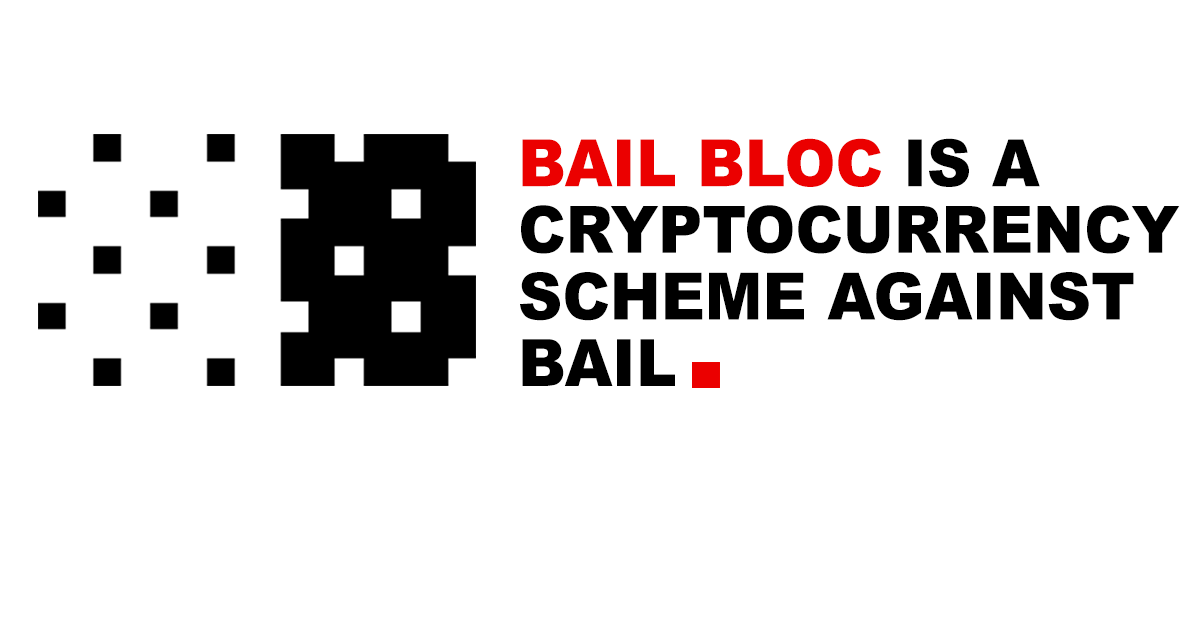The New Inquiry is pleased to announce the launch of Bail Bloc, a desktop application that uses computer processing power to get people out of jail.
Read our past work on policing and mass incarceration here.
FAQ
What are you donating when you run Bail Bloc?
Your computer is being used to verify transactions for the Monero cryptocurrency ledger. This process of reward is known as “mining” and is an incentive to participate in the upkeep of the network. When you run Bail Bloc, you are donating a small percentage of your overall computing power to this task, which results in money for bailing people out of pre-trial detention.
Why Monero?
Monero is an ASIC-resistant cryptocurrency, which means two things: that computers designed for the singular purpose of mining cryptocurrency are unable to mine it, and that consumer-level computers can mine it in a financially viable way. It also has a stable value relative to other high value cryptocurrencies. The open source code base for Monero mining software made this a tenable project for our team.
Doesn’t mining have a large environmental footprint?
Mining cryptocurrency requires energy. It is important to make the distinction, however, between Monero mining and Bitcoin mining. The latter has been in the news for its considerable environmental impact. Bail Bloc is a very small mining operation compared to what is referenced in those articles. “Bitcoin Farms” generate hundreds of thousands of dollars per day; Bail Bloc, on the other hand, generates–on an individual level–mere cents per day. Bail Bloc is set to utilize only an additional 10-25% of your computing power, and so your environmental impact will be 10-25% greater than is usual for your computer.
Will my electricity bill go up?
On an individual level, the funds generated by Bail Bloc are negligible (we estimate that each computer will generate $3-5 per month), and so the increase in your electricity bill should be negligible too. If you’re worried about even a small increase in your electricity bill–we’re talking $1-2–try using Bail Bloc in a place where an institution pays the bills and allows you to run moderate computing tasks (e.g. gaming or watching YouTube videos). For example, at your place of employment, at school, or at a gentrifying coffee shop.
Does Bail Bloc cost more to mine in electricity than it donates toward posting bail?
No. With many cryptocurrencies this is the case, but as can be verified with hashrate per wattage calculators, mining Monero is financially viable even when considering the cost of electricity.
Even so, isn’t it more efficient to just donate cash directly?
Directly routing money to nonprofits is, of course, the most efficient means of donation. We encourage everyone who has the means to donate directly to their community bail funds in addition to running Bail Bloc. If your community doesn’t yet have a bail fund, we suggest you organize to create one, and in the meantime give money to the individuals and families forced to bear the burden of posting bail on their own.
As a non-profit, The New Inquiry has seen first-hand how difficult it is to encourage individuals to donate out of their own pockets, especially when those individuals don’t have direct access to capital, which is true for the vast majority of our readership. Bail Bloc was not designed to replace any of these other fundraising efforts–it was designed to accompany them.
This project is also greater than the sum of its parts, or the sum of its hashrate; This is as much about catapulting a radical criticism of bail into the public imagination as it is about raising bail funds via cryptocurrency. This project seeks to engage people in a dialog about the fact that the justice system takes as a basic assumption that poor people will not be able to afford bail. Bail Bloc is one tool, among many, to support the varied, long-standing movement for abolition.
